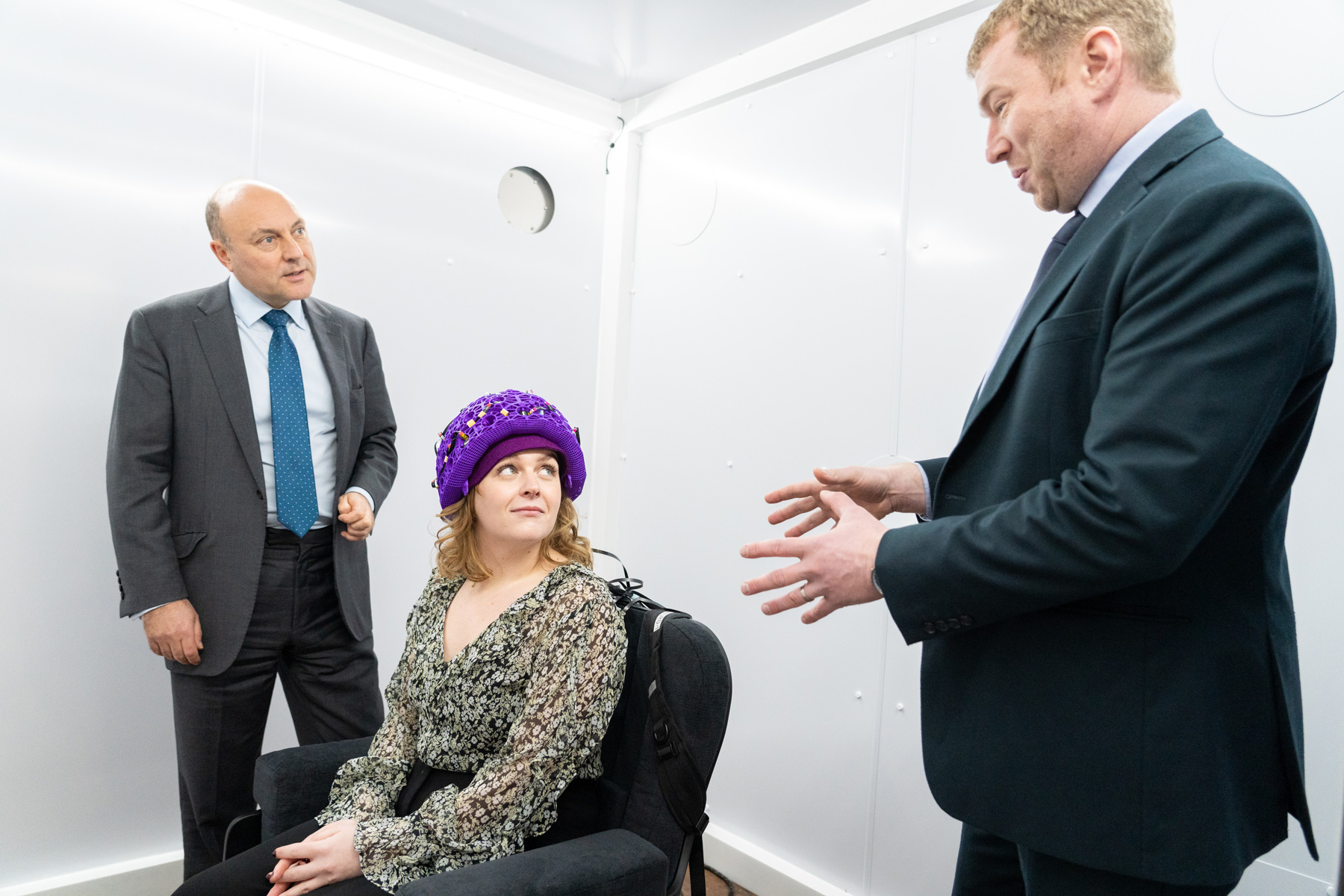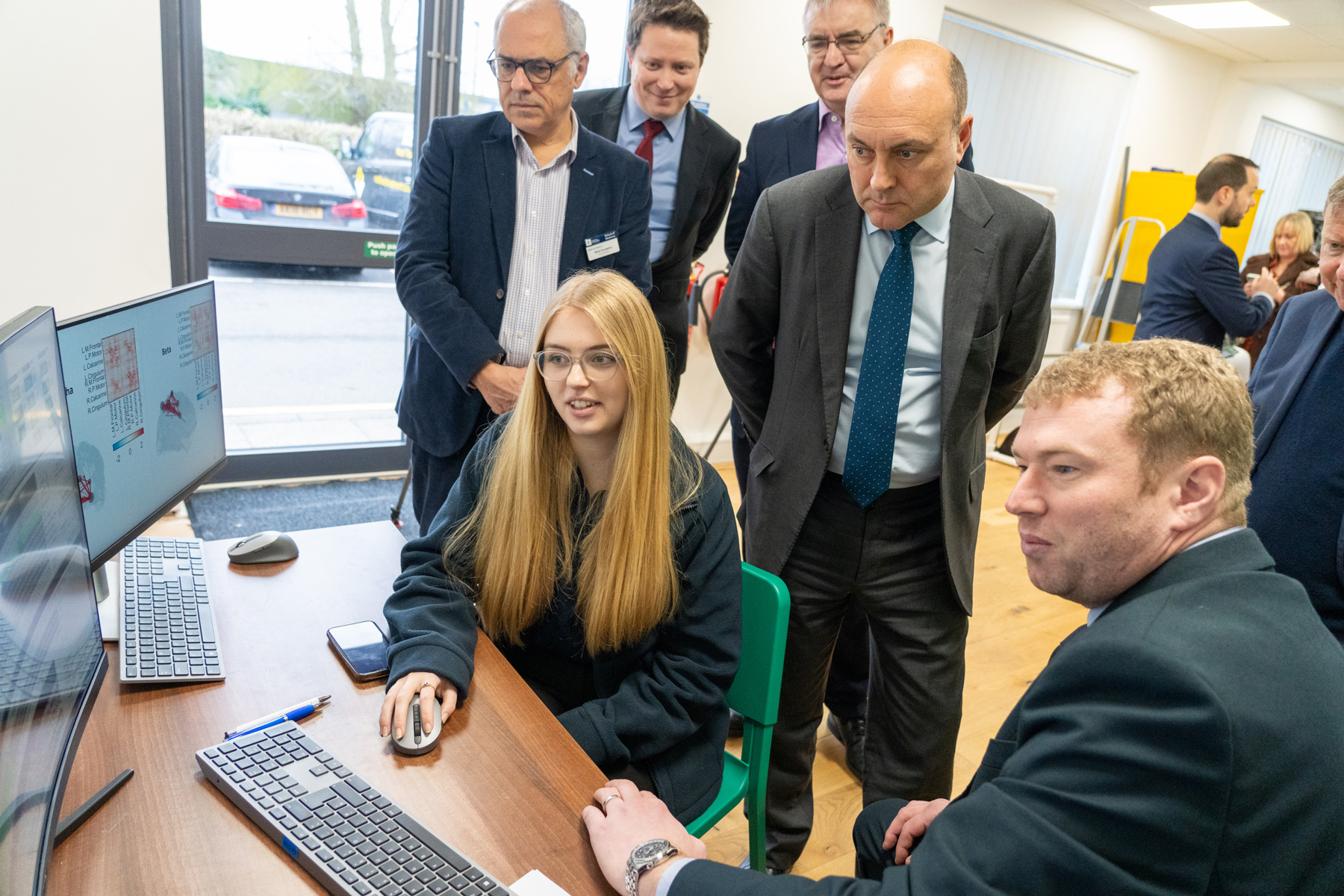University of Nottingham spin-out company Cerca Magnetics has been awarded £2m as part of £45 million government investment in the UK's quantum sector for wearable brain imaging research to help detect early signs of dementia.
The investment announcement was made during a visit to Cerca Magnetics Nottingham headquarters this week by Science Minister Andrew Griffith MP who outlined how this funding supports the government's vision to transform into a quantum-enabled economy by 2033.

The wearable OPM-MEG system was originally prototyped and tested at the University of Nottingham's Sir Peter Mansfield Imaging Centre – part of the School of Physics and Astronomy and has been commercialised by Cerca Magnetics who design and install systems for use in research institutions around the world.
This new funding will be used to install a system at the Oxford Centre for Human Brain Activity who will be using it to develop a greater understanding of exactly what happens to the function of the brain in people with dementia, which could lead to developing methods for earlier diagnosis and treatment.
The University of Nottingham and Cerca Magnetics, in partnership with Colorado based atomic physics company QuSpin Inc., have pioneered the rapid development of this new type of brain scanner, which employs quantum technology to measure magnetic fields above the scalp. A process termed magnetoencephalography (MEG).
The system uses small LEGO-brick-sized optically pumped magnetometers (OPMs) to measure the brain magnetic field, these have been incorporated into a lightweight helmet that allows people to move freely during scaning. The innovative design means the system can be adapted to fit anyone, from newborns to adults, and sensors can be placed much closer to the head, dramatically enhancing data quality. OPM-MEG is also much cheaper than conventional MEG scanners, providing greater accessability for clinical institutions.
Since Cerca's formation in July 2020 we have delivered a number of systems to the research market and this latest funding will allow us to support vital work in understanding dementia. We were delighted to show the Science Minister around our headquarters and demonstrate the technology developed here in Nottingham. As a team we are very excited about the potential societal impact of this project if we are able to identify bio-markers for earlier diagnosis of dementia and this funding from the Government demonstrates the importance of quantum technology research in solving medical and societal issues.
Quantum technologies are recognised as one of the government's five critical technologies as set out in the UK Science and Technology Framework. They already offer possible solutions to some of society's greatest challenges and provide future capabilities that are yet to be explored.
Over the next ten years, quantum technologies are expected to revolutionise many aspects of life in the UK and bring enormous benefits such as helping to grow our economy and create well-paid jobs across the country – one of the Prime Minister's five priorities.
As we steer towards an economy benefitting from quantum, this further £45 million in funding underscores our commitment to support bright UK innovators who are pushing boundaries and seizing the potential of this technology to transform our public services. Cutting-edge work on a quantum enabled brain scanner, which will be a beacon of hope for those battling neurological conditions, is just one example. The UK is already one global leader in quantum and to maintain that position this government will continue to invest in this transformational technology propelling the UK into a new era of technological prowess and economic growth.







